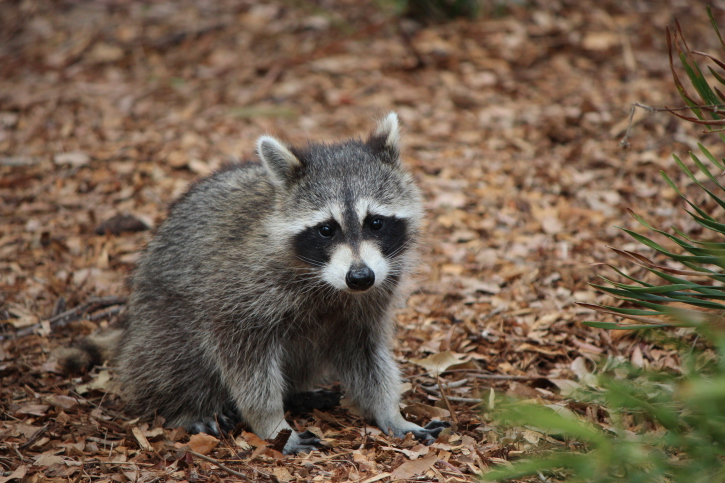Raccoons can be especially active during mating season when preparing for baby raccoons. Unfortunately, the activity results in a lot of excretion in human-populated areas. While animal waste is not an attractive component of the outdoors, it is a natural process. The primary issue is to avoid overpopulation on your property to avoid the development of a raccoon latrine — a communal defecation site.
To avoid population control issues, you should contact humane wildlife removal in Whitby to assess and remove any critters around your home. Skedaddle Humane Wildlife Control can remove wildlife, while also providing insights for protecting your property and preventing future animal nesting sites.
Common Raccoon Bathroom Areas
Many people assume that raccoons and other wildlife go to the bathroom wherever and whenever convenient, but that is not the case. Raccoons are surprisingly clean animals, and the species prefers to find bathroom areas or restrooms. There are many popular latrine locations, including:
- Fallen logs
- Wood piles
- Base of trees
- Stumps
- Decks or patios
- Attics
- Garages
It is crucial to keep areas around your property clean to prevent attracting wildlife. However, if raccoons select your patio as a restroom, keeping the site washed and free of feces is essential.
Reason Cleanup Is so Important
Raccoon feces looks unsightly and smell awful. While the sight and odour of the excrement are often enough to encourage homeowners to clean the area, the waste is also a common source of bacteria and hazardous substances.
Baylisascaris procyonis, or roundworm, is a common health issue in raccoon populations. The parasite often contaminates the waste of raccoons and can transfer to humans.
While the likelihood of transmission to adults is unlikely, children who crawl around and play near raccoon latrines can accidentally touch the waste, later putting their hands or fingers in or near their mouths. A child or adult does not have to touch the excrement to get sick. The soil around the feces can become contaminated with the parasite as well.
Because of the potential for infection, it is crucial to remove any raccoon waste as soon as possible. However, because bacteria and parasites can transfer to people, precautions are necessary.
Cleanup Process
Before you begin the cleanup process, ensure you are taking all the appropriate precautions. The primary ways to protect yourself include:
- Disposable gloves
- Rubber boots or booties
- Respirator
Aside from wearing personal protective equipment, you will also need to wash your shoes, hands, and face to avoid bringing contaminants, parasites, or bacteria into your home. Roundworm eggs can attach to shoes and track into your home, making exposure more likely. To clean up the area, you will need several tools. The latrine cleanup kit should include a shovel and some plastic bags. You will need to use the shovel to pick up any contaminated materials, including raccoon feces, emptying it into a plastic bag. Dispose of the bag in the garbage.
To eliminate any roundworm eggs that might be left behind, you can use boiling water. While many people will use bleach or other chemicals, these products do not kill roundworm eggs. If you continue to find raccoon poop on your property this is not something to take lightly. Calling a professional raccoon removal service is recommended to keep your family, pets and home safe.
Professional Assistance
DIY treatment and removal are possible, but it is not advised. The risk of infection from bacteria and parasites is too high and presents too great of a threat. If your property is home to a raccoon latrine, DIY removal will not ensure you have fixed the problem. Raccoon removal is likely the only solution to ensure safety on your property.
Do you have a raccoon population near your home? If so, contact Skedaddle Humane Wildlife Control to assess and resolve your property issues. The company’s experts can help clean up your property safely and allow the raccoons to thrive in their natural environment.



